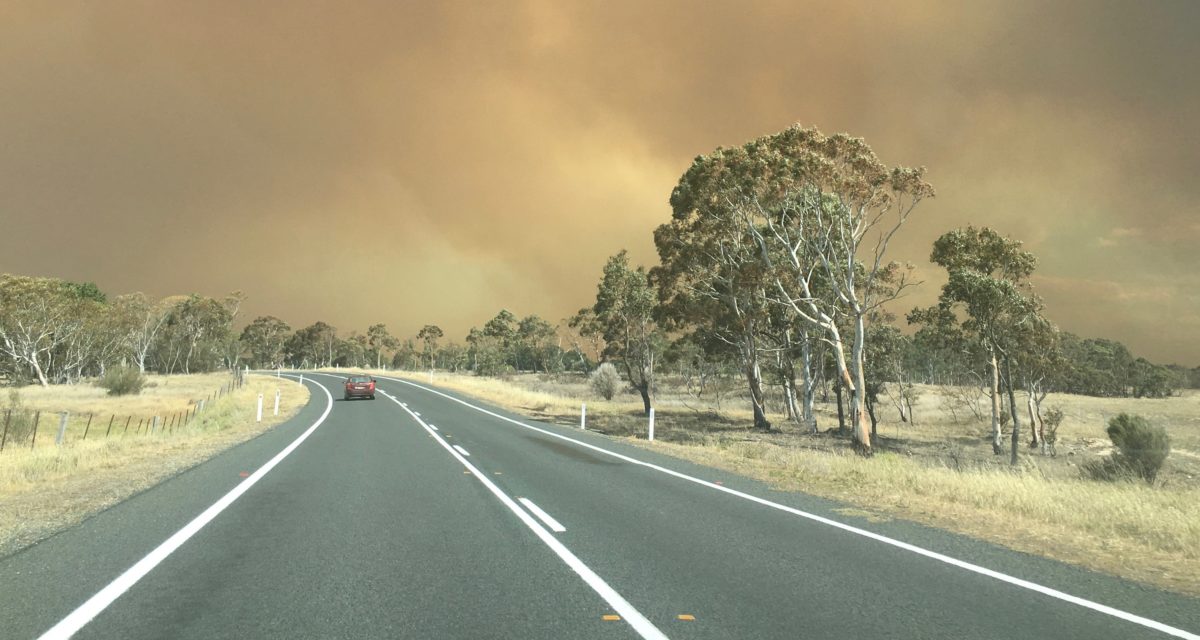Tabled in parliament by the federal government last Friday, the Royal Commission into National Natural Disaster Arrangements report unequivocally acknowledges that climate change fuelled the Black Summer bushfires. The fires, which were the worst on record for Australia, killed 33 people with an estimated 400 more dying from the effects of the smoke, displaced or killed three billion animals and burned 18.6 million hectares.
A stark wake-up call and glimpse of what’s to come in the future if Australia does not take concerted climate action, the Royal Commission’s 80 recommendations stopped short of advice relating to Australia’s greenhouse gas emissions specifically, but clearly stated the risk of disasters will continue to climb if emissions don’t fall. The recommendations in the report align with those made in the Climate Council’s Australian Bushfire and Climate Plan, which includes calls specifically for solar, battery and microgrid solutions.
“To address the escalating dangers of climate change, Australia must rapidly reduce greenhouse gas emissions by accelerating the transition to renewable energy and storage. This means meeting 100% of our energy needs with renewable electricity backed by storage technologies, including an important role for solar energy and battery storage,” Ella Weisbrot, told pv magazine Australia.
In the Climate Council’s plan, which was developed earlier this year by over a hundred scientists, emergency leaders, medics, and bushfire survivors and is referenced in the Royal Commission’s report, the organisation proposes rebate schemes for solar and battery systems as well as investment in decentralised electricity infrastructure.
“Centralised infrastructure, including power systems, can be disrupted during disasters, leaving communities in greater danger. Decentralised systems including microgrids based on solar and batteries can help ensure that communities have a secure and reliable source of power,” Climate Council researcher, Simon Bradshaw, told pv magazine Australia.
Bradshaw says small and midscale community-owned electricity systems which are gaining momentum across Australiaare a “win-win-win” in terms of disaster resilience, reducing emissions and supporting local jobs and prosperity. “They also put communities in ownership of a productive asset and save on costs,” Bradshaw added.
Modelling from the Climate Council shows 2,000 jobs could be created over the next three years in Australia in community-scale energy storage and generation. This is in addition to the 15,000 jobs that could be created installing additional utility-scale renewable energy. “This includes wind and solar farms, battery storage and upgrades to transmission infrastructure,” Weisbrot said.
Despite his focus on the positives associated with increased uptake of solar, battery and other renewable energy systems, Bradshaw stressed that tackling Australia’s climate and bushfire crisis requires urgent action from the government.
His voice joins a choir of others putting pressure on Scott Morrison to definitively act, including British Prime Minister Boris Johnson, French President Emmanuel Macron, Chilean president Sebastián Piñera, Italian prime minister Giuseppe Conte and the UN secretary general, Antonio Guterres. It was recently revealed that in October the above leaders sent Prime Minister Morrison a letter which said the Australian government must make “bold new commitments” to combat the climate crisis by next month if Morrison is to speak at a global climate summit in December.
Climate Councillor, founder of Emergency Leaders for Climate Action and former NSW Fire and Rescue Commissioner, Greg Mullins, echoed the sentiments which seem to be amplifying from all directions in his testimony for the Royal Commission.
“The Federal Government absolutely has to act on the root cause of worsening bushfires in Australia, and take urgent steps to reduce greenhouse gas emissions. This clearly means no new coal or gas, and a rapid transition to renewable energy,” Mullins said.
This content is protected by copyright and may not be reused. If you want to cooperate with us and would like to reuse some of our content, please contact: editors@pv-magazine.com.









By submitting this form you agree to pv magazine using your data for the purposes of publishing your comment.
Your personal data will only be disclosed or otherwise transmitted to third parties for the purposes of spam filtering or if this is necessary for technical maintenance of the website. Any other transfer to third parties will not take place unless this is justified on the basis of applicable data protection regulations or if pv magazine is legally obliged to do so.
You may revoke this consent at any time with effect for the future, in which case your personal data will be deleted immediately. Otherwise, your data will be deleted if pv magazine has processed your request or the purpose of data storage is fulfilled.
Further information on data privacy can be found in our Data Protection Policy.